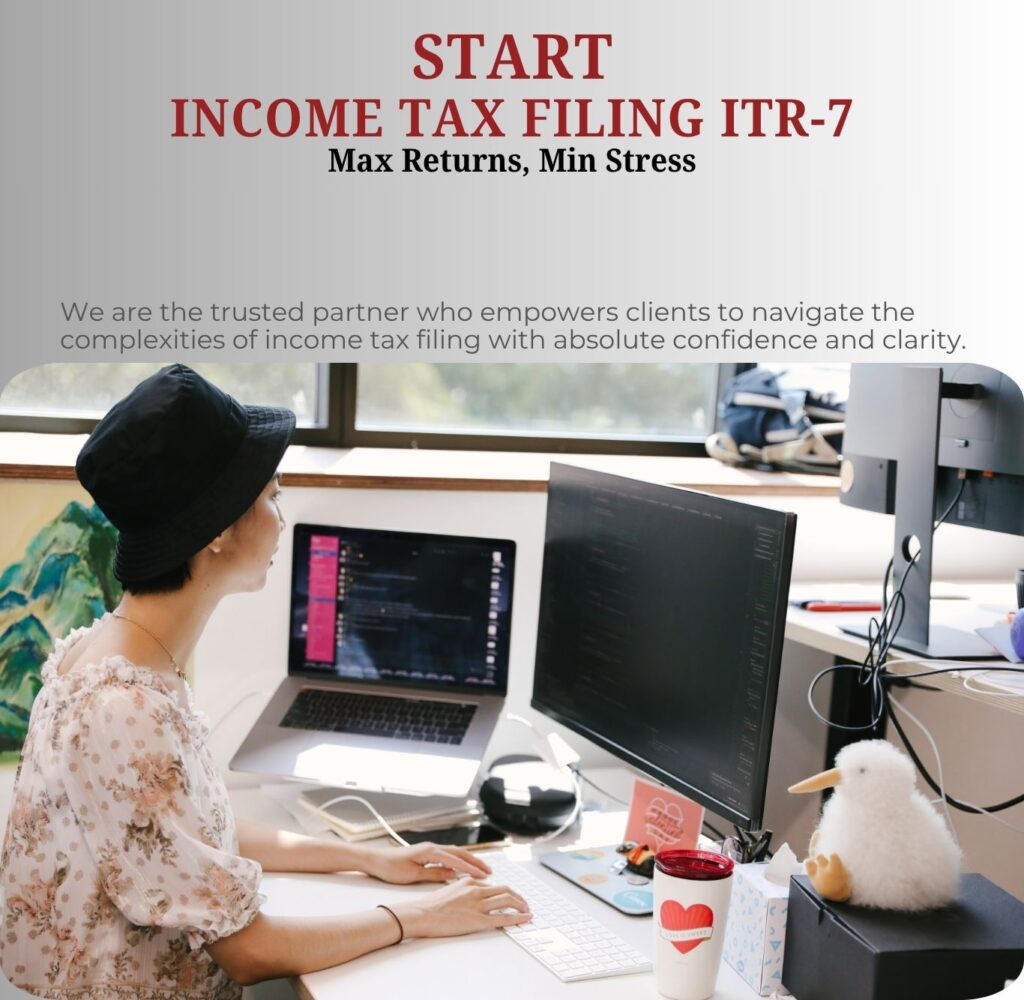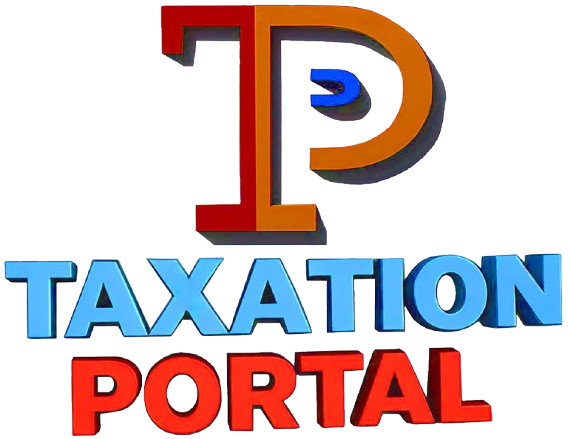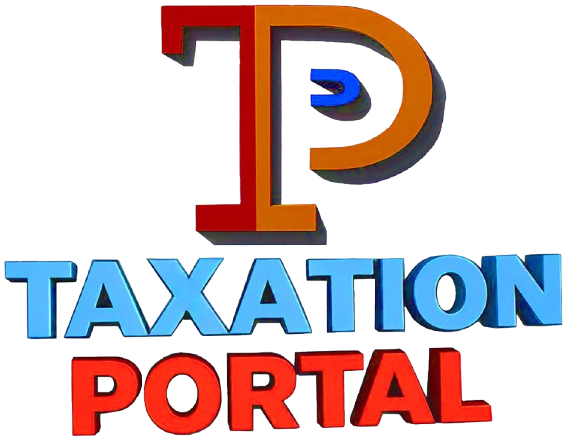
The Income Tax Return (ITR) Form 7 is a specialized form in India used by entities that claim specific income tax exemptions, primarily those related to charitable, religious, political, or educational purposes. It’s distinct from the other ITR forms as it caters to entities operating under specific provisions of the Income Tax Act.
Who is Eligible to File ITR-7?
ITR-7 is mandatory for persons, including companies, who are required to furnish a return under the following sections of the Income Tax Act, 1961:
Section 139(4A)
This applies to Charitable or Religious Trusts. If your income from property held under trust or other legal obligation for charitable or religious purposes, or from voluntary contributions, exceeds the maximum amount not chargeable to income tax (without considering Section 11, which grants exemption), you must file ITR-7. This also includes institutions claiming exemption under Section 11 and 12.
Section 139(4B)
This applies to Political Parties. If the total income of a political party, without giving effect to the provisions of Section 13A (which grants exemption for certain incomes of political parties), exceeds the maximum amount not chargeable to income tax, it must file ITR-7.
Section 139(4C)
This applies to specific institutions claiming exemption under Section 10. These include:
- Scientific Research Associations
- News Agencies
- Associations or Institutions referred to in Section 10(23A) (professional associations)
- Institutions referred to in Section 10(23B) (certain mutual funds, etc.)
- Hospitals or other medical institutions
- Universities or other educational institutions
Section 139(4D)
This applies to Universities, Colleges, or other Institutions as referred to in Section 35(1) (for scientific research) or Section 10(23C)(iiiad)/(via) (for certain educational/medical institutions). This also includes Khadi and Village Industries.
Section 139(4E)
For Business Trusts (like REITs and InvITs) which are not required to furnish return of income under any other provisions of Section 139.
Section 139(4F)
For Investment Funds referred to in Section 115UB.
In essence, if an entity (be it a Trust, Society, Company, AOP, BOI, Local Authority, or an Artificial Juridical Person) claims exemption under the specific sections related to charitable/religious activities, political activities, scientific research, or educational/medical institutions, it generally files ITR-7.
Who Cannot File ITR-7?
- Individuals
- Hindu Undivided Families (HUFs)
- Firms
- Limited Liability Partnerships (LLPs)
- Companies that do not claim exemption under Section 11 (they generally file ITR-6).
- Any entity that does not fall under the specific sections mentioned above (they would file other ITR forms like ITR-5).
Key Changes for FY 2024-25 (AY 2025-26) for ITR-7
The ITR-7 form for AY 2025-26 has undergone several revisions to ensure more detailed reporting and compliance:
Expanded Disclosure of Income and Donations
Entities must now provide more granular source-wise segregation of income. This includes specific details for voluntary contributions and donations, grants/government funding, business income, interest, and dividend income.
Foreign Contributions Disclosure
If the entity is registered under FCRA (Foreign Contribution (Regulation) Act), detailed disclosure of foreign contributions received is now mandatory, not optional.
Asset & Liability Reporting
Trusts and institutions are required to report a comprehensive statement of their movable and immovable assets, loans and liabilities, cash reserves, and investments. This aims to ensure better tracking of the end-use of tax-exempt income.
Audit Report Integration
If an audit report is required (e.g., under Section 12A(1)(b) or 10(23C)), it must be electronically submitted and the details linked to the ITR-7. The system may auto-fill details based on uploaded Forms 10B/10BB.
Electronic Filing and Verification
ITR-7 must be filed online. While Digital Signature Certificate (DSC) is generally mandatory for companies and certain other entities, Electronic Verification Code (EVC) or Aadhaar OTP may be allowed for select filers.
Disclosure of Income from Unexplained Sources (Section 115BBI)
A new disclosure is introduced for income from unexplained sources, with tax implications under Section 115BBI.
Accreted Income (Section 115TD)
A specific schedule is included for reporting tax on accreted income under Section 115TD, relevant if a trust converts into a non-charitable form or fails to meet certain conditions.
Capital Gains Reporting Split
Similar to other ITRs, capital gains must be split and reported based on whether the transfer occurred before or after July 23, 2024, to align with new capital gains rules.
TDS Section Mandatory
It is now mandatory to mention the specific TDS section under which tax was deducted for income other than salary, for claiming the tax credit.
Legal Entity Identifier (LEI) Disclosure
A new field for Legal Entity Identifier (LEI) is introduced for entities undertaking financial transactions of ₹50 crore or more during the year, especially for those seeking a refund of ₹50 crore or more.
Important Due Dates for FY 2024-25 (AY 2025-26)
The due date for filing ITR-7 depends on whether the entity’s accounts are subject to audit:
For entities whose accounts are NOT required to be audited
- The due date for filing ITR-7 for FY 2024-25 (AY 2025-26) is September 15, 2025. (This is an extension from the usual July 31st deadline, granted due to ITR form revisions).
For entities whose accounts ARE required to be audited (e.g., under Section 12A(1)(b), Section 10(23C), or any other relevant section)
- Due date for furnishing Audit Report (Form 10B/10BB etc.): September 30, 2025. (This report must be filed electronically at least one month before the ITR filing due date).
- Due date for filing ITR-7: October 31, 2025.
For entities involved in international or specified domestic transactions (requiring a report under Section 92E – Form 3CEB)
- Due date for filing ITR-7: November 30, 2025.
Belated or Revised Return for FY 2024-25
December 31, 2025 (with applicable penalty and restrictions).
Updated Return (ITR-U)
Can be filed up to March 31, 2029 (48 months from the end of the Assessment Year 2025-26).
Documents Required for ITR-7 Filing
ITR-7 is a highly detailed form, and extensive documentation is required to accurately fill it. While no documents are physically attached, you must keep them ready for reference:
Constitutional & Registration Details
- PAN of the Trust/Institution/Political Party/Body.
- Trust Deed/Memorandum of Association/Rules & Regulations: Establishing the entity and its objectives.
- Registration Certificates: Under relevant acts (e.g., Societies Registration Act, Trust Act, FCRA, Companies Act, etc.).
- Approvals/Registrations from Income Tax Department:
- Certificate of Registration under Section 12A/12AA/12AB.
- Approval under Section 80G (if applicable).
- Approval under Section 10(23C) (if applicable).
- FCRA registration certificate (if receiving foreign contributions).
Financial Statements & Audit Reports
- Audited Financial Statements:
- Income and Expenditure Account (similar to Profit & Loss Account).
- Balance Sheet as of March 31, 2025.
- Receipts and Payments Account.
- Audit Report:
- Form 10B: Mandatory for trusts/institutions registered under Section 12A/12AB and claiming exemption under Section 11/12 (if total income exceeds basic exemption limit).
- Form 10BB: For certain institutions under Section 10(23C).
- Other applicable audit reports (e.g., statutory audit report if it’s a company).
- Details of Application of Income: Statement showing how the income was applied for charitable/religious purposes during the year.
- Details of Accumulation of Income: Statement of amounts accumulated or set apart for future application (within meaning of Section 11(2)).
Income & Expenditure Related
- Bank Statements: Of all bank accounts, reconciled.
- Details of Voluntary Contributions/Donations: Records of all contributions received, including anonymous donations.
- Details of Corpus Fund: Opening balance, additions, and applications from the corpus.
- Details of Grants/Government Funding.
- Details of Income from Investments: Interest certificates, dividend statements, etc.
- Details of Income from Business/Profession (if carried on by the entity).
- Capital Gains Statements: For any capital assets sold.
- Details of Foreign Contributions: As per FCRA regulations, with separate reporting if applicable.
- Details of Other Income Sources.
- Details of all Expenses incurred: Classified as per Income and Expenditure Account.
- TDS Certificates (Form 16A/16B/16C) & TCS Certificates (Form 27D): For taxes deducted/collected on the entity’s income.
- Form 26AS: Tax Credit Statement for verifying TDS, TCS, Advance Tax, and Self-Assessment Tax.
- Annual Information Statement (AIS) & Taxpayer Information Summary (TIS): Crucial for cross-verifying all reported financial transactions.
Other Specifics
- Details of Author(s)/Founder(s)/Trustee(s)/Manager(s)/Members: Name, PAN, address, etc.
- Details of Shareholders/Beneficiaries: If applicable.
- Details of properties held by the trust/institution.
- Legal Entity Identifier (LEI) details (if applicable, for transactions >= ₹50 crore).
- Proof of payment of Advance Tax and Self-Assessment Tax.
Documents Required for ITR-7 Filing
ITR-7 must be filed electronically. For many entities, filing through the Offline Utility (JSON-based) is generally recommended due to the extensive data entry required.
Method 1: Using the Offline Utility (Recommended)
Download Utility
Go to the Income Tax e-filing portal (www.incometax.gov.in) > “Downloads” > “Income Tax Returns” > Select “Assessment Year 2025-26” > Download the “ITR-7 JSON Utility.”
Import Pre-filled Data
Open the utility. You can import pre-filled data by entering the entity’s PAN and Assessment Year. This will fetch basic entity details and some financial data from AIS/TIS/Form 26AS.
Fill in Details
Navigate through the numerous sections and schedules of ITR-7. This involves meticulous data entry from your audited financial statements and other documents:
- Part A – General: Basic information of the entity, section under which the return is filed, type of institution/trust, details of registration/approval (12AB, 80G, 10(23C) etc.).
- Part A-Audit Information: Details of the audit report (Form 10B/10BB) and the UDIN (Unique Document Identification Number).
- Schedule I: Details of amounts accumulated/set apart under Section 11(2).
- Schedule J: Statement showing investment of funds of the trust/institution.
- Schedule K: Particulars regarding Author(s)/Founder(s)/Trustee(s)/Manager(s) etc.
- Schedule LA: Details in case of a political party.
- Schedule ET: Details in case of an Electoral Trust.
- Schedule HP: Income from House Property.
- Schedule CG: Capital Gains.
- Schedule OS: Income from Other Sources (including winnings from online games).
- Schedule VC: Details of Voluntary Contributions received.
- Schedule AI: Aggregate of income derived, excluding voluntary contributions.
- Schedule ER: Revenue from exempt income.
- Schedule IE-1, IE-2, IE-3, IE-4: Income and expenditure statements (as applicable to the entity type).
- Schedule SDC: Statement of sums deemed to be income under various sections.
- Schedule 115BBI: Income from unexplained sources.
- Schedule 115TD: Accreted income.
- Schedule TDS/TCS: Credit for taxes deducted/collected.
- Part B-TTI: Computation of total income and tax liability.
- Part B-Audit Info: This section cross-verifies details with the auditor’s report.
Validate
The utility has built-in validation checks. Run these to identify any errors or omissions. This is crucial for such a complex form.
Generate JSON File
Once validated, generate the JSON file.
Upload JSON
Log in to the e-filing portal using the entity’s credentials. Go to “e-File” > “Income Tax Returns” > “File Income Tax Return” > Select Assessment Year, Online Mode, and ITR-7 > “Upload JSON.”
E-Verify (Mandatory)
After successful upload, the return must be verified. For political parties, companies, and entities whose accounts are subject to audit, Digital Signature Certificate (DSC) of the authorized signatory is mandatory. Other entities may use Electronic Verification Code (EVC) or Aadhaar OTP. Verification must be completed within 30 days of filing.
Method 2: Online Filing (Less common for ITR-7)
While the option to fill and submit ITR-7 directly online is available, it can be cumbersome due to the large number of schedules and the detailed information required. The offline utility provides a more structured and efficient way to handle extensive data entry.
Consequences of Non-Filing or Inaccurate Filing
Penalty for Late Filing (Section 234F)
- ₹5,000 if total income exceeds ₹5 lakh.
- ₹1,000 if total income is up to ₹5 lakh.
Interest
Interest under Section 234A, 234B, and 234C on unpaid tax.
Loss Carry Forward Disallowed
Losses cannot be carried forward to future years if the return is filed after the due date.
Loss of Exemption
Most critically, trusts and institutions may lose their exemption under Section 11/12 or 10(23C) if they fail to file ITR-7 on time or fail to comply with other conditions (like obtaining an audit report). This can lead to their entire income being taxed at the maximum marginal rate.
Penalty for Non-Audit/Inaccurate Audit Report
If a tax audit was required (e.g., Form 10B/10BB) but not done, or the report is inaccurate, penalties can be levied.
Scrutiny & Notices
Increased likelihood of scrutiny from the Income Tax Department, leading to further investigations and demands.
Given the intricate nature of the income tax provisions for charitable/religious trusts, political parties, and other exempt entities, and the comprehensive requirements of ITR-7, it is highly advisable to seek our tax experts special to ensure accurate and compliant filing.

